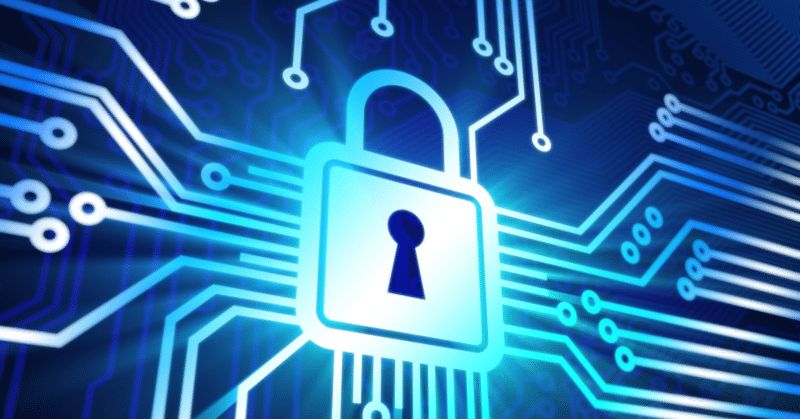
中央銀行はまもなくデジタル通貨を使い始めるだろうし、人々がそれに準備ができているかどうかは問題ではないだろう
中央銀行はまもなくデジタル通貨を使い始めるだろうし、人々がそれに準備ができているかどうかは問題ではないだろう
2023年1月18日(水) by: JD Heyes
(Natural News)今週発表されたレポートによると、各国がデジタル通貨に対する準備ができているかどうか、あるいはその背後にあるコンセプトを理解しているかどうかにかかわらず、どちらにしても中央銀行はすぐに使い始めるだろうし、それについてできることはそれほど多くない、という。
ウォールストリート・ジャーナル紙の報道は、複雑さの問題に触れ、デジタル通貨は "まだ理解している人が少ない "にもかかわらず、"銀行システムに大きな影響を与える可能性のある、ゲームを変える開発 "であると指摘した。
同アウトレットはこう指摘しています:
"中央銀行のデジタル通貨 "は、必ずしも舌を巻くものではありません。しかし、この言葉に慣れた方がいいかもしれない。ドル、人民元、ユーロ、円、その他の通貨のデジタル版である、いわゆるCBDCが登場すると、それを研究している人々は言う。そして、どのように設計され、どのように展開されるかによって、銀行システムに大きな影響を与える可能性がある"。
「アトランティック・カウンシルの中央銀行デジタル通貨トラッカーによると、14カ国がデジタル通貨を模索しており、その経済規模は世界のGDPの95%以上を占めている」とWSJは報じている。「中国、インド、ナイジェリア、バハマなど、すでにデジタル通貨を導入している国もある。中国、インド、ナイジェリア、バハマなど一部の国はすでにデジタル通貨を導入しており、スウェーデンや日本など他の国は導入の準備を進めている。米国はこの問題を研究しており、デジタル通貨を可能にする様々な技術の試験を実施していますが、パウエルFRB議長は米国の中央銀行にはデジタル通貨を作る計画がなく、議会からの指示がなければ作らないことを表明しています。"
しかし、明らかに米国は異常者かもしれない。我々にとって唯一の利点は、おそらく、今のところ、(デジタルバックではなく)本物のドルが世界の基軸通貨であるという事実である。しかし、これは長くは続かないだろう。
WSJは、各国がデジタル通貨を調整することなく独自に開発し、状況をさらに難しく、混乱させていることを指摘している。「しかし、一般的にCBDCは、金融機関が使用するために設計されたものと、一般市民が使用するために設計されたものの2種類に大別されます。
最初のタイプは、中央銀行と商業銀行間の送金に使われるので、かなり簡単に実行でき、理解しやすいはずです。何しろ、アメリカ人はもう何十年も「デジタル決済」、つまり紙の小切手を切ったり、労働者に実際のお金を渡したりせずに、会社から従業員の銀行へ電子的に給与を振り込んでいるのですから。
しかし、「第2のCBDCは、中央銀行や商業銀行が保有する口座を通じて一般大衆が利用できる不換紙幣のデジタル版である」と報告書は続けています。「一般人や企業から見れば、この種のCBDCは、現在彼らの銀行口座にある電子マネーと何ら変わりません。
「この種のCBDCが特別なのは、中央銀行が直接アクセスできる口座で作成され、保有されていることです。例えば、パンデミックが起きたら、FRBは米国市民のデジタル通貨口座に景気刺激策の『小切手』を預けることができる」と報告書は言っている。
しかし、ここからが厄介なのだ。個人、州、連邦政府の順で権力を共有する立憲共和制では、中央銀行を持つのは連邦政府だけで、州は中央銀行を持っていない。そしてもちろん、お金を印刷するのも、規制するのもアメリカ政府の管轄です。つまり、ハードカレンシー(現物貨幣、金、銀、プラチナなど)が存在しない完全なデジタル世界では、文字通り中央政府がすべての貨幣を常時支配しており、バイデン政権が前大統領のドナルド・トランプとその支持者に対していかに専制的に振る舞ってきたかを考えると、それは恐ろしい命題なのである。
今後、民主党が運営するディープステートが気に入らないプロMAGAデモがあったらどうなるのでしょうか?オールデジタル通貨の世界では、文字通り、政府が保有するデジタルを没収(一掃)する可能性がある。
政府に何かを完全にコントロールさせるのは、決して良い考えではない - 特に私たちのお金をね。
情報源は以下の通り:
WSJ.com
ナチュラルニュースドットコム
原文:
Central banks will begin using digital currencies soon and it won’t matter whether people are ready for it
Wednesday, January 18, 2023 by: JD Heyes
(Natural News) A report published this week says that whether or not countries are ready for digital currencies or even understand the concept behind them, central banks are going to begin using them soon either way, and there isn’t much that can be done about it.
The Wall Street Journal‘s report touched on the issue of complexity, noting that digital currency is a “game-changing development [that] could have a profound impact on the banking system” despite the fact that “few people still understand it.”
The outlet noted:
“Central-bank digital currency” doesn’t exactly roll off the tongue. But you might want to get used to saying it. These so-called CBDCs, or digital versions of dollars, yuan, euros, yen or any other currency, are coming, say those who study them. And depending on how they are designed and rolled out, their impact on the banking system could be profound.
“One hundred and fourteen countries are exploring digital currencies, and their collective economies represent more than 95% of the world’s GDP, according to the Atlantic Council’s Central Bank Digital Currency tracker,” the WSJ reported. “Some countries, including China, India, Nigeria and the Bahamas, have already rolled out digital currencies. Others, like Sweden and Japan, are preparing for possible rollouts. The U.S. is studying the issue and has run trials of various technologies to enable a digital currency, although Fed chair Jerome Powell has indicated the U.S. central bank has no plans to create one, and won’t do so without direction from Congress.”
But obviously, the U.S. could be the outlier; the only advantage for us, perhaps, is the fact that, for now, the real dollar (not a digital buck) is the world’s reserve currency. But this isn’t likely to last.
The WSJ noted the fact that countries are sort of winging it at the time, developing digital currencies on their own without really coordinating the effort, making the situation even more dicey and confusing. “Generally, however, CBDCs can be roughly divided into two types: those designed for use by financial institutions and those designed for use by the general public,” the report said.
The first type will be used for transfers between central and commercial banks, so that should be fairly easy to perform and to understand. After all, Americans have been ‘digitally paid’ — that is, pay electronically transferred from a company to an employee’s bank, without cutting a paper check or handing the worker actual money, for decades now.
However, “the second type of CBDC is a digital version of fiat money made available to the general public through accounts held by a central bank or a commercial bank,” the report continued. “From the perspective of a regular person or business, this kind of CBDC isn’t any different from the electronic money in their bank accounts today—it’s just a digital dollar.
“What makes these kinds of CBDCs special is that they are created, and held, in accounts that a central bank has direct access to. If another pandemic happened, for example, the Fed could just deposit stimulus ‘checks’ into every U.S. citizen’s digital-currency account,” the report said.
But here’s where it gets tricky. In a constitutional republic, where the individual, then the state, then the federal government share power (in that order), the federal government is the only entity with a central bank; states don’t have them. And of course, the U.S. government is in charge of printing the money, as well as regulating it. So in a completely digital world where there is no hard currency (physical money, gold, silver, platinum, etc.), the central government literally controls all of the money at all times, and that is a scary proposition, given how tyrannically the Biden regime has behaved in regards to a former president, Donald Trump, and his supporters.
What happens if there is a pro-MAGA demonstration in the future that the Dem-run deep state doesn’t like? In an all-digital-currency world, the government could literally confiscate (or wipe out) their digital holdings.
It’s never a good idea to give the government complete control over anything – especially all of our money.
Sources include:
WSJ.com
NaturalNews.com
この記事が気に入ったらサポートをしてみませんか?
